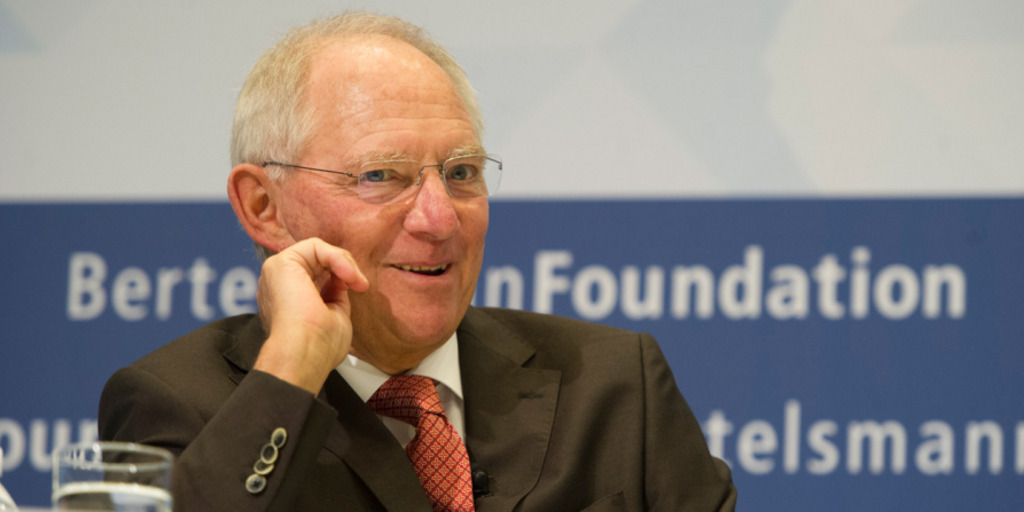"We don't have a recession in Germany, we have a weakening of growth," Schäuble said. The discussion was entitled "Growth and Austerity: Can the Eurozone Have Both?" and moderated by Financial Times Chief US Commentator Edward Luce.
The finance minister emphasized the need to respect fiscal rules that had been negotiated among all eurozone member states. He warned that a currency union could not function without a common fiscal and monetary policy, and denied that more flexibility would be offered to countries that implement urgently needed reform. "The problem of moral hazard is crucial," he repeatedly noted, warning against the spending of other people's money although the currency union provides that option. Europe must achieve greater growth, but this is "not to be achieved by writing checks".
"Growth comes from confidence in European institutions"
"As soon as France and Italy implement substantial structural reform, the situation in Europe will change," Schäuble said. He added that the new governments in Paris and Rome understood the necessity of action in this area and their responsibility to pursue it. "Our responsibility is not to govern Europe," he said, referring to Berlin.
The minister cited similar views from European Central Bank President Mario Draghi, calling him the "most outspoken man" to ask Europeans to keep to the rules and implement structural reform. Growth would also come from a regained confidence in European institutions, Schäuble predicted.
In discussing the United States, the minister emphasized the different economic conditions on either side of the Atlantic. He noted the dollar provided Washington with an advantage that should not be underestimated. "You cannot compare the US with Europe. It's totally different," Schäuble said. At the same time, no one should "underestimate the challenge of building... a currency union". Europe, the minister added was also demographically old and risk-averse, which added to its economic challenges.
Schäuble avows himself to TTIP
Schäuble expressed forceful support for the ongoing Transatlantic Trade and Investment Partnership (TTIP) negotiations. "I hope that TTIP will not fail.... It must not fail. We have to work on it.... We urgently need TTIP," he said. The minister added that an agreement was sensible since Germany and Europe have similar agreements as part of other trade partnerships. He said it would be "unimaginable" not to have a TTIP when "the most important partnership is between both sides of the Atlantic."
Schäuble brushed aside complications in the trans-Atlantic relationship stemming from the NSA scandal, which has severely damaged German-American ties. "We need strong intelligence in this time," he said, adding that "America is ready to correct mistakes." He warned that any European security official - Schäuble was twice German interior minister responsible for security issues - would be "lost" without American intelligence.
"True political danger comes from Russia"
Turning to Russia, the minister said President Vladimir Putin's actions had put trans-Atlantic discord on surveillance activities in perspective. He said the true political danger does not come from the US, and he called upon the Kremlin to respect international law. He acknowledged that sanctions against Moscow had harmed the German economy but confirmed the necessity for such action. While the drop in trade with Russia had contributed to German economic weakness, he indicated that the Russian economy would be the one to suffer the greatest damage.
Finally, addressing the possibility of a "Brexit", or UK withdrawal from the EU, Schäuble expressed his desire to keep the British in. He voiced support for working with London on EU treaty amendments, believing that it might simultaneously strengthen the roles of eurozone and non-eurozone governments in the ongoing process of European integration. Despite British reluctance to join the common currency, he predicted that at least 25 of the current 28 EU member states would eventually adopt the euro.
A video recording of this event can be found here.



